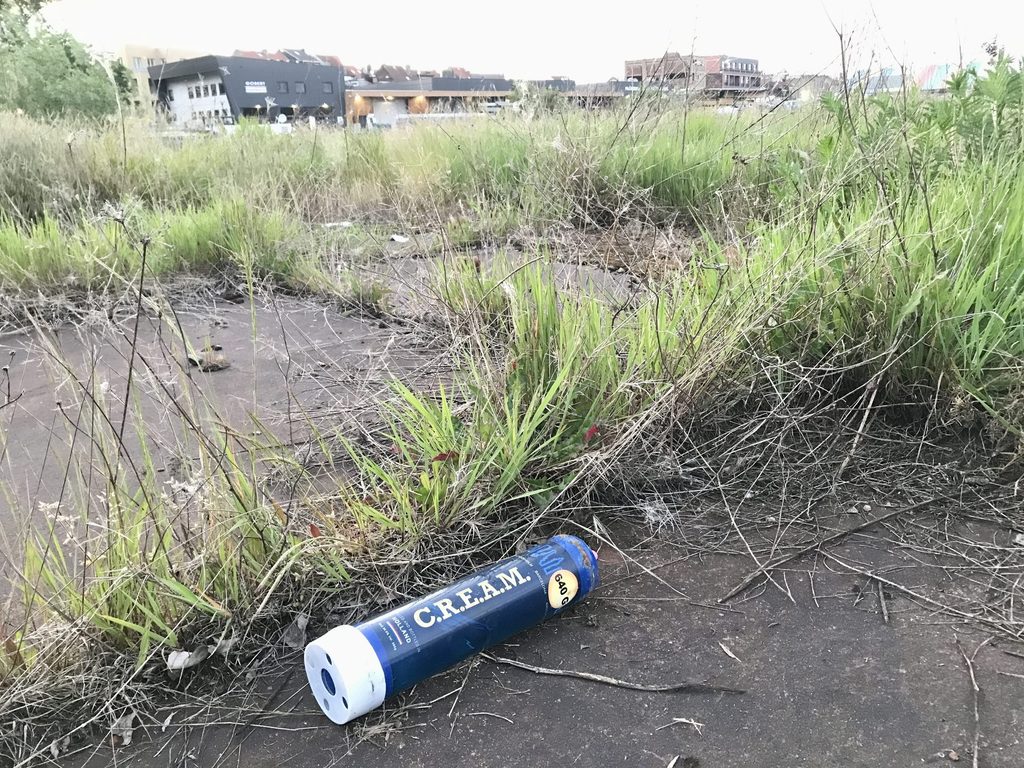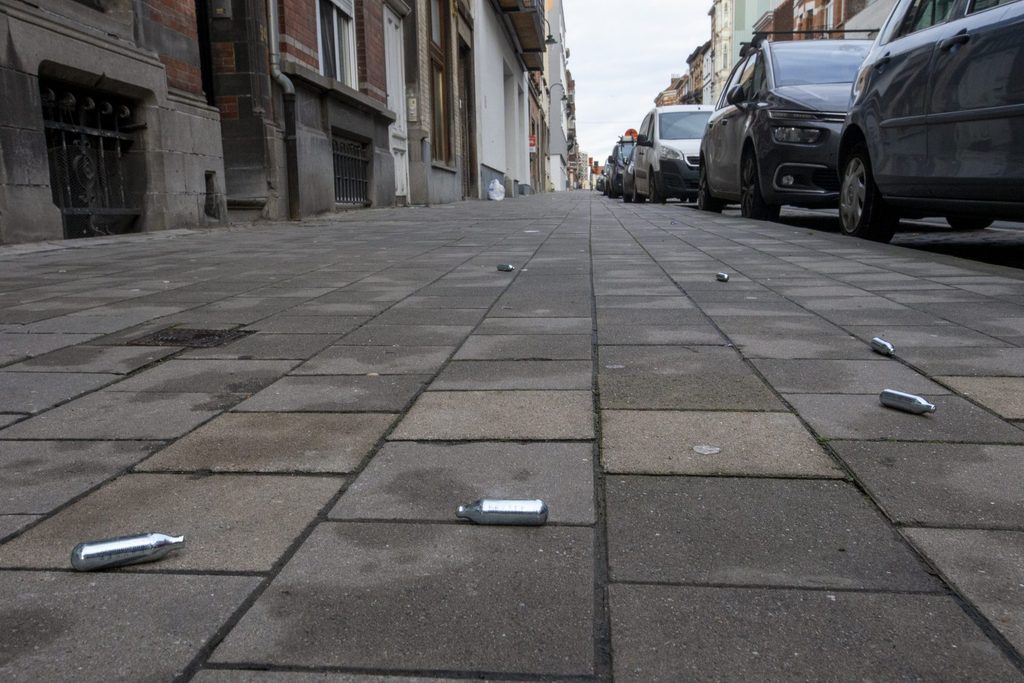The Brussels Department for Safety has carried out a survey on the use of nitrous oxide (more commonly known as laughing gas) in the region, concluding from the significant quantities of waste cylinders collected that consumption of the gas remains as popular – or even more so – than ever.
This conclusion is despite official figures on fines for illegal use decreasing. In fact, latest analysis shows that in January 2023 alone, 4.7 tonnes of nitrous oxide waste were collected by regional cleaning services in the Brussels-Capital area. The recreational use of nitrous oxide is officially prohibited in the region.
448 fines were issued in 2021 for the use and/or possession of nitrous oxide for recreational purposes. Comparatively, in 2022 this figure had fallen to 291 fines – a 35% decrease.
Who's using?
The 22–25 age range remains the most likely to offend, ahead of the 18–21 year group and 26-30-year-olds. In terms of location, the municipality of Brussels 1000 saw the most infringements.
However, the actual and overall consumption in Brussels is much more difficult to quantify, especially since "the use of nitrous oxide is now more frequent in private places, such as nightlife venues. To prevent its intensive use, it is therefore necessary to focus on awareness and prevention targeted at high-risk groups,” safe.brussels explains.
To combat the harmful effects of nitrous oxide consumption, including abandoned waste, solutions are being studied, both in Belgium and abroad.
Belgium officially banned the sale of nitrous oxide to minors in 2022, and the possibility of a general ban for the entire population is still being considered by the government.

Nitrous oxide canisters have been getting larger to cater to the growing demand. Credit: Orlando Whitehead
For young people, laughing gas is considered a party drug that provides a quick and legal high. However, chronic use of the psychotropic gas also causes serious health consequences, according to a recent report by the European Monitoring Centre for Drugs and Drug Addiction, which stated it is “increasingly worried” about the increased consumption of the gas.
It highlighted that misuse can lead to an array of illnesses and injuries and that its effects are becoming increasingly problematic across Europe. Laughing gas has also been associated with psychological issues.
But "criminalising" nitrous oxide could also cause adverse effects. According to the European Monitoring Centre for Drugs and Drug Addiction, "supply restriction can encourage criminal organisations, theft or diversion of the legal supply chain, or even illegal manufacture of the product."

